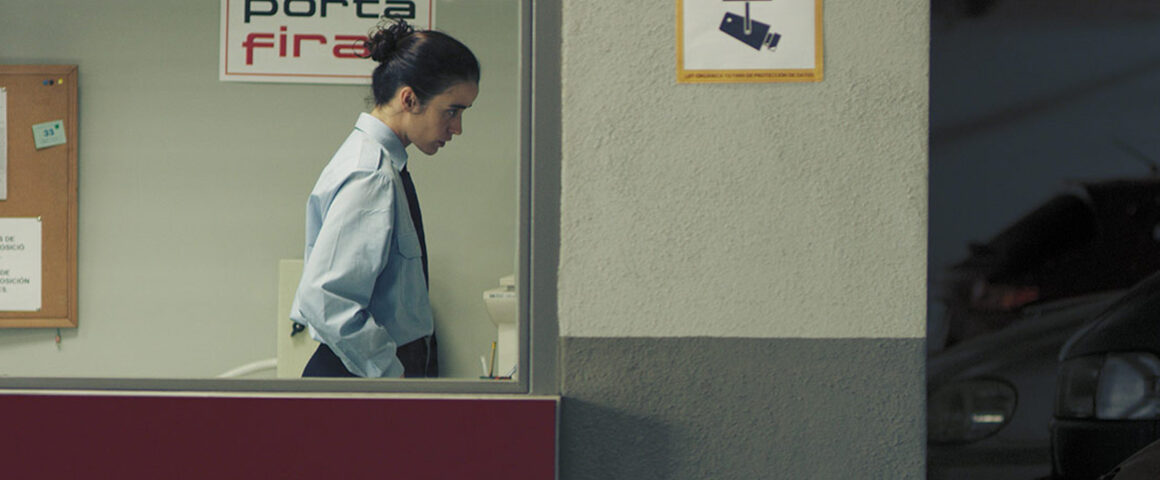Award seasons can be both a good and bad affair for films. While the Academy Awards’ coveted Oscar has lost some of its sheen in recent years, awards are still a huge draw for people, especially those that come from a very particular French resort. Undoubtedly, Cannes produces a showcase selection of films considered artistic or valuable, but it also incurs the inevitable backlash. As such, being the winner of the Palme d’Or in the short film category, it’s impossible to respond to Timecode without fastidious scrutiny. Even as the credits begin to roll, there’s a niggling desire for something more meaningful from a story so simple.
Without question, Juanjo Giménez Peña’s first short film in seven years is as simple as a film can be. Timecode begins by following Luna (Lali Ayguadé) on her way to work in a basement parking lot. There, her mannerisms and appearance transform into someone almost unrecognizable to the woman we’ve been introduced to, and Luna takes over her shift from Diego (Nicolas Ricchini), who works nights. Under direct orders from her manager, Luna is asked to inspect the night’s recordings to note any evidence of damage done to one of its cars. However, what she discovers is both bizarre and revealing of something extremely personal.
Admittedly, by filming the preceding action as banal as possible, Peña accomplishes a smooth and amusing tonal shift that transforms the whole film into a sweet-natured, unusual romantic comedy. Its reveal is essential to its overall charm, becoming a commentary on finding methods of expression and beauty under bleak and oppressive surroundings. It becomes important that the majority of the film’s action is seen through the view of CCTV footage to emphasize social scrutiny and the freedom our protagonists achieve despite always being watched across two monitors. In this sense, Timecode tells its tale and examines its themes with great effect.
However, amidst its unorthodoxy, there is something quite derivative to its central premise. Anyone who has seen Disney’s “Inner Workings” has essentially seen the same film, but with its brow set to a higher level. Dubbed a “crowd pleaser” by many journalists attending Cannes, Timecode does as described, but its fifteen-minute runtime makes every moment feel insubstantial. Yes, its message is feel-good but is anything unique being said? The short answer is simply no.
This isn’t to decimate the film and write it off as bad either. It’s exactly the consequence of winning awards; the immediate question is whether or not the accolades were deserved. For Timecode, it unfortunately is not, but that doesn’t detract from the admirable approach in cinematography, choreography, and design with which everything is told. The movie delivers an amusing story which will definitely entertain people, but it seems like a lot more could be explored when it finally stops.




'Movie Review: Timecode (2016)' has no comments